Premium Only Content
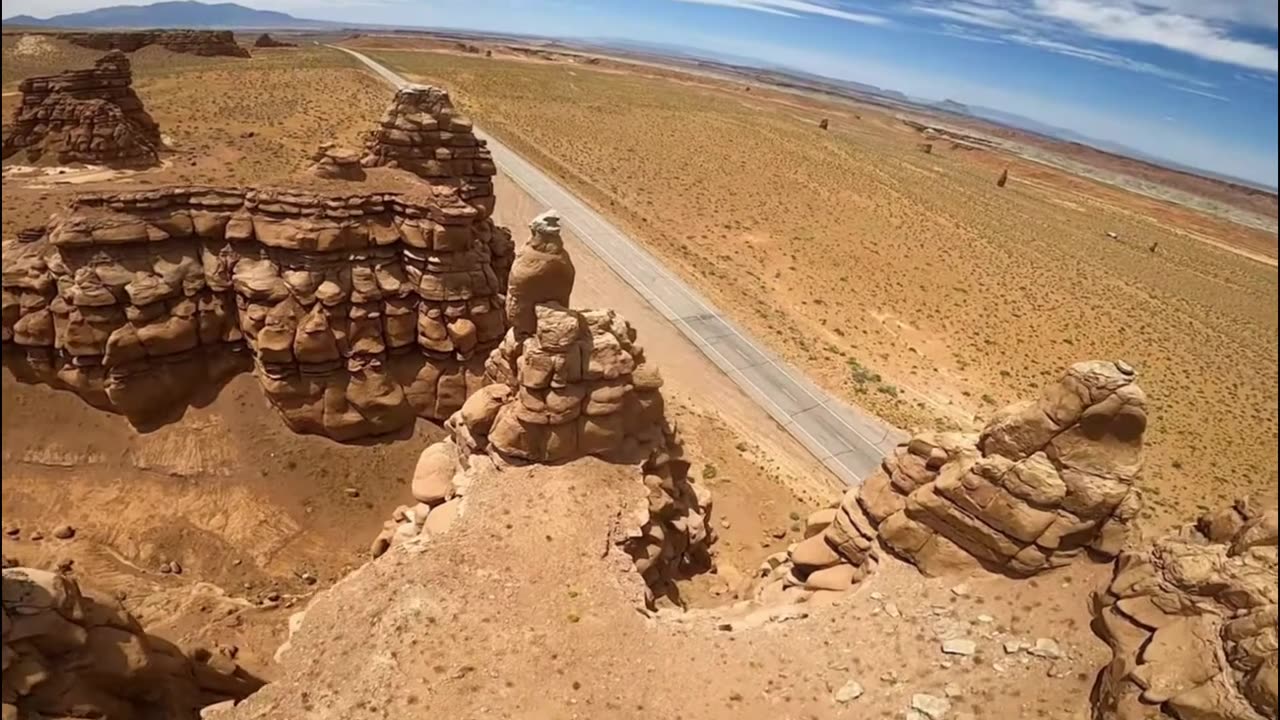
Bad Reputation I Love Rock N Roll Crimson And Clover Joan Jett
Bad Reputation Album: Bad Reputation (1981)
I Love Rock and Roll Album: I Love Rock And Roll (1981)
Crimson and Clover
by Joan Jett
Jett wrote Bad Reputation with Kenny Laguna, who produced the album and helped her establish a solo career after her group, The Runaways, broke up. In a Songfacts interview with Laguna, he said: "It's about Joan having been kind of a wild woman in The Runaways, and us trying to make a record deal, going around having people say, 'No, she's too crazy, like the punks and nazis.' Joan had this bad reputation, no label would sign her - that's why we own the records. It was so frustrating, we thought we should write a song about it.
Speaking with Rolling Stone in 2022, Jett talked about her bad reputation. "I always wore it as a badge of honor," she said. "Because what people were saying to me was I had a bad reputation because I played an electric guitar and I had black hair and a leather jacket, and maybe I swore... So I turned around the meaning of it, and I'm proud of my bad reputation."
This song made a very bold statement, establishing Jett as an independent-minded rocker with no concern for traditional gender roles in rock. Her co-writer Kenny Laguna told us: "'I don't give a damn about my reputation, it's a new generation,' that was the whole thing, a girl could do what she wants to do. When she was singing those lyrics, it was radical because there were no girls doing anything other than what they were supposed to do, they were all supposed to be like the girl groups. They were supposed to be dainty, wear dresses. They weren't supposed to play instruments. The song was definitely autobiographical."
Laguna had worked for The Who's European record company and was friends with the band. The Who fronted money so he and Jett could make the album, which was called Joan Jett. In Europe, the album was released on a German label called Ariola Records. They didn't want to use this song as a single, and instead released "Jezebel" and "You Don't Know What You Got." They didn't do very well and Laguna bought the record back from Ariola for $10,000. In the US, they released the album on their own label, Blackheart Records, and changed the track order so Bad Reputation led off the album.
Joan Jett made the Rock and Roll Hall of Fame in 2015 and developed a reputation as a leading lady of rock, but around this time, she was struggling to get noticed and trying to get airplay.
Kenny Laguna said how "Bad Reputation" ended up on one very influential station, which gave it the push it needed. "I remember Dan Neer, who was one of the top DJs in New York at WNEW, his girlfriend was helping us out with publicity," he said. "She brought him down to see Joan play in Brooklyn and he left after three songs - I thought he hated it. The next day WNEW started playing 'Bad Reputation,' which is not the song we wanted them to play, we wanted them to play 'Do You Wanna Touch Me,' but it became their breakout song of the week. In those days, the AOR stations were alternative, but real alternative, not like today's alternative which is really a Top 40 format and is all about record company priorities. These guys were playing something on an independent label. Every time a station didn't want to play 'Touch Me' or burned it out, we would make them play 'Bad Reputation.' That was the beginning of the song becoming known. Then there were a few bands that covered it, and it just took off."
When the song started getting airplay, it attracted the attention of record labels and Jett signed a deal with Boardwalk Records. The album was then remixed and the title was changed to Bad Reputation. The next year, Jett released "I Love Rock And Roll," which was a huge hit, but not the one Jett wanted to be known for the rest of her life - she didn't write that one.
Bad Reputation became Jett's signature song, and although it's very well known, it was never released as a single.
Speaking about recording this song, Kenny Laguna said: "We tried to do one of those speedy punk rock songs. The day we recorded it, we didn't know it too well, we just managed to get a good drum track. Joan had to play all the guitars - the rhythm track was pretty good. I put on like a Jerry Lee Lewis piano, but until the piano went on, it really sounded kind of unfinished."
Bad Reputation was the theme song to the NBC TV show Freaks And Geeks. The show was about a group of kids trying to deal with high school. It was canceled after one season in 1999-2000, but had a large cult following and was praised by critics who felt it would have gotten better ratings if NBC gave it a chance.
Some of the movies Bad Reputation has been used in include Shrek, Wonderland, Kingpin Baby Mama, Kick-Ass and 10 Things I Hate About You. It's very popular for scenes that portray an outcast in a lighthearted way.
When Jett was inducted into the Rock and Roll Hall of Fame in 2015, she was the first to perform at the ceremony, and opened her set with this song.
"I Love Rock And Roll" was originally recorded by a British group called The Arrows in 1975, and it was written by their lead singer Alan Merrill and guitarist Jake Hooker. Merrill explained in an interview how this song came about: "That was a knee-jerk response to the Rolling Stones' 'It's Only Rock 'N' Roll.' I remember watching it on Top of the Pops. I'd met Mick Jagger socially a few times, and I knew he was hanging around with Prince Rupert Lowenstein and people like that – jet setters. I almost felt like 'It's Only Rock and Roll' was an apology to those jet-set princes and princesses that he was hanging around with - the aristocracy, you know. That was my interpretation as a young man: Okay, I love rock and roll. And then, where do you go with that?"
The song was released as a B-side with The Arrows' "Broken Down Heart." The group was recording for RAK Records, which was run by Mickie Most. As Merrill explains, "I Love Rock And Roll" didn't suit his current tastes, as during that time Most preferred ballads and blues. Most's wife Christina Hayes encouraged him to flip the sides, but the song didn't catch on, as it suffered from a poor run of luck at the time of its release. First, it had to be re-released as an A-side. Second, the song came out during an English newspaper strike, so new songs weren't getting the exposure they'd normally get. Third, The Arrows were feuding with their record label. As a result, the song didn't chart and was banished to obscurity.
All was not lost, however, as The Arrows performed this song when they were guests on the UK TV series Pop 45. The show's producer, Muriel Young, was so impressed that on the strength of this performance, she gave them their own TV show, simply called The Arrows Show, which ran from 1976-1977 in the UK for two full 14-week seasons on the ITV network. It was this show that Joan Jett saw in 1976, which prompted her to acquire a copy of "I Love Rock and Roll" and later cover it in 1981, producing what is arguably one of the most successful covers in rock history.
Jett was touring England as a member of an all teenage girl group called The Runaways when she discovered I Love Rock And Roll. She wanted to record it with The Runaways, but the other members didn't like the song and made the mistake of passing it up. So, in 1979, Jett recorded it with Paul Cook and Steve Jones of The Sex Pistols and released it as a B-side. Finally, in 1981, Jett recorded the song with her band The Blackhearts, resulting in a monster hit.
When the Runaways broke up, Joan Jett and her producer Kenny Laguna put her first solo album together with studio time and travel arrangements fronted by The Who. They struggled to get a record deal and had to form their own label, Blackheart Records, to release the album in America. Jett and Laguna both thought "I Love Rock and Roll" was a great song, but since they didn't have the backing of a major label, they held off on it until they could establish themselves and get better distribution. When "Do You Wanna Touch Me" and "Bad Reputation" started getting airplay, they got a deal with Boardwalk Records. That first album, which was called Joan Jett, was remixed and renamed Bad Reputation. Now that she had a record deal, Jett released "I Love Rock and Roll," which was her first single on a major label and was included on her second album.
The Runaways' bass player, Michael Steele, went on to join the Bangles, and their guitarist Lita Ford had a successful solo career, but Joan Jett emerged as their most famous alumna. Kenny Laguna plays a big part in her story, as he helped Jett get started as a solo artist and worked with her throughout most of her solo career. In 1972, after working with acts like Tommy James & the Shondells and Tony Orlando, Kenny was looking for work and found it through Peter Meaden, who managed The Who when they were still known as The High Numbers. Meaden got Kenny a job working at Mobile Records in England, where he became friends with The Who and met The Runaways' manager, who asked him to produce what would be their last album. Kenny didn't work on that album, but when The Runaways broke up, he started working with Jett. Peter Meaden, who introduced Kenny to The Who and helped revive his career, was the manager of The Arrows, the group that wrote and originally recorded "I love Rock and Roll." If Kenny had accepted the job and produced The Runaways' last album, there is a good chance he would have made them record it, since he thought it was a hit.
Jett's 1979 version of I Love Rock And Roll was owned by The Polygram company, who were not enthusiastic about Joan or the song. Laguna explains: "They could care less about Joan Jett, they were busy signing every other Runaway. They thought Joan was the loser and they signed the other girls, who we're all friends with, but I looked at the band and thought she was the Mick Jagger and Keith Richards of the band. The company decided that if I would pay the studio cost of $2,300, I could have all the rights, and I got three songs. I got 'I Love Rock and Roll' with The Sex Pistols, I got 'You Don't Own Me' - they did a great version of the Lesley Gore hit, and they did a song Joan wrote called 'Don't Abuse Me.' So I buy these songs back. In the meantime, Joan has a couple of fans. Rodney Bingenheimer of K-ROCK, KMAC in Long Beach, BCN in Boston, LIR in Long Island, they were playing The Sex Pistols' kind of cruddy version of the song, and it was #1 on the alternative stations. It was really alternative music, they were way-out stations that would play some pretty adventurous stuff, that's why they would play Joan, because Joan was not getting a record deal, Joan was way on the outside, like a Fugazi of her day. We saw some kind of potential there. I remember these guys from the big record distributors in Long Island kept calling and saying, 'This is a hit record, we're getting so many requests for it.' So we cut it over and did a really good version of it."
The line "Put another dime in the jukebox" was dated by the time Jett released her version, as very few jukeboxes took dimes. "Quarter" didn't sound good in the lyrics, and as jukeboxes slowly disappeared or became computerized contraptions accepting paper currency, it didn't matter anyway.
Jett's next two singles, "Crimson And Clover" and "Do You Wanna Touch Me (Oh Yeah)" were also covers of songs originally recorded by male singers.
In the US, I Love Rock And Roll was #1 for seven weeks in 1982. "Ebony And Ivory" by Stevie Wonder and Paul McCartney did the same a few weeks later.
The video of I Love Rock And Roll was directed by Arnold Levine, who also did many of the Loverboy and Bruce Springsteen clips. Jett wore a red leather outfit to the shoot, which took place at New York club called Private's with an assortment of fans that showed up that day forming the crowd. When Jett and Levine looked at the edit, the colors were a mess, with way too much red and mauve in the shots because of poor fashion choices. This was not the rock and roll video they imagined, but when Jett saw the black-and-white work copy, she loved it. Without the color, the clip looked gritty and retro, which is what they were going for.
This black-and-white version stood out on MTV among far more colorful clips by the likes of the Go-Go's and The J. Geils Band. It became a huge hit on the network, which had launched just months earlier and was becoming a criterion of cool. The video helped send I Love Rock And Roll up the charts and establish an image for Jett as a rough-hewn rocker.
Hooker stated publicly that he wrote the song in 15 minutes, but in an interview with Vive Le Rock, Merrill countered that claim, saying Hooker added basically nothing.
"When it came to songwriting sessions, Jake was basically an enthusiastic cheerleader for the most part," Merrill said.
He went on to say that the reason he included Hooker on writing credits on I Love Rock And Roll was because Hooker, who received regular financial support from his mother in the band's early days, paid for a plane ticket from London to Tokyo in 1974. Merrill had already built an audience in Tokyo with his earlier band Vodka Collins. Because of that ticket purchase, Merrill promised to always include Hooker's name in the songwriting credits.
Hooker died (suicide, according to Merrill) in 2014, so hasn't been able to respond to the claims. After the Arrows broke up, he went on to manage the music career of his wife, Lorna Luft, as well as some other acts (including, briefly, Merrill).
The Arrows were based in England, where they don't have dimes - they would put a sixpenny in the jukebox to buy a song. They could have made it universal with "put another coin in the jukebox," but Mickie Most liked dime because it sounded American.
The album cover was shot by Mick Rock, who in the '70s did a lot of work with David Bowie and Lou Reed - he shot the covers of Reed's albums Transformer and Coney Island Baby, and directed several of Bowie's videos. Jett didn't have much of a budget, but Rock was friends with her lawyer and agreed to do it. "They came to my studio around midnight and we worked for two to three hours," Rock said in an interview. "When I shot that, I remember seeing her somehow as a female Elvis Presley with that slightly rockabilly outfit on. I brought together the lettering on the cover, and there it was."
The song's co-writer, Alan Merrill, died at 69 on March 29, 2020, one of the first high-profile victims of the coronavirus pandemic. Joan Jett offered condolences on Twitter, posting: "I can still remember watching the Arrows on TV in London and being blown away by the song that screamed hit to me."
Weird Al Yankovic recorded an ice cream-themed parody titled "I Love Rocky Road" for his 1983 debut album. Jett wasn't a fan.
-
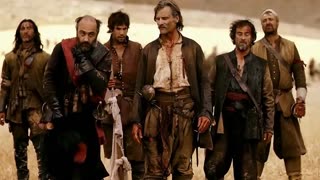 14:20
14:20
Psychological operations
8 days agoYou Better You Bet Don't Let Go The Coat Another Tricky Day The Who
38 -
 9:48:25
9:48:25
Rallied
14 hours ago $19.36 earnedWarzone Solo Challenges All Day w/ Ral
102K6 -
![Aug Day #10 of RCP 🤟 [FR/ENG] 🫶 Some Fortnite then Demos then continue on StarRupture 🫶 🤟](https://1a-1791.com/video/fww1/81/s8/1/O/0/c/-/O0c-y.0kob-small-Aug-Day-10-of-RCP-FRENG-Som.jpg) 4:24:45
4:24:45
Deaf Gamer Girl
12 hours agoAug Day #10 of RCP 🤟 [FR/ENG] 🫶 Some Fortnite then Demos then continue on StarRupture 🫶 🤟
51.6K2 -
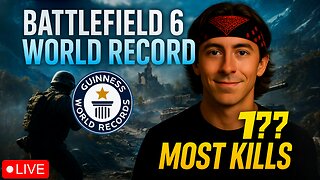 6:59:09
6:59:09
Reidboyy
16 hours ago $12.42 earnedBattlefield 6 #1 POV (Watch and Learn)
97.6K4 -
 2:25:42
2:25:42
TheSaltyCracker
11 hours agoThey So Mad ReEEeStream 8-10-25
131K289 -
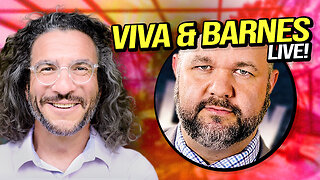 2:27:39
2:27:39
vivafrei
19 hours agoEp. 276: Epstein Subpoenas &Trump E.O! Bondi Offers Reward for Maduro Arrest? MADNESS IN CANADA!
152K145 -
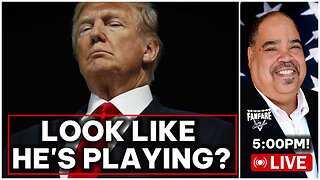 2:23:55
2:23:55
Barry Cunningham
14 hours agoPRESIDENT TRUMP IS NOT PLAYING AROUND...AND THE LIBNUTS CAN'T STOP HIM!
104K65 -
 22:02
22:02
Stephen Gardner
20 hours ago🔥JUST IN: Trump BETRAYAL plot EXPOSED!
128K311 -
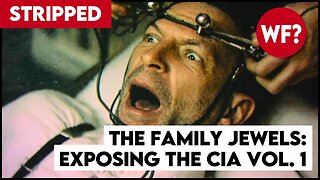 38:32
38:32
The Why Files
21 days agoThe Real CIA Vol. 1: 693 Pages of Secret Crimes
138K61 -
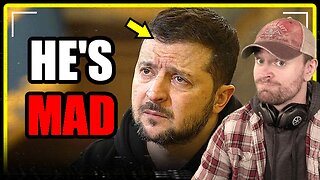 49:12
49:12
MattMorseTV
17 hours ago $23.18 earned🔴Zelenskyy is NOT HAPPY about Trump’s NEW DEAL.🔴
131K162